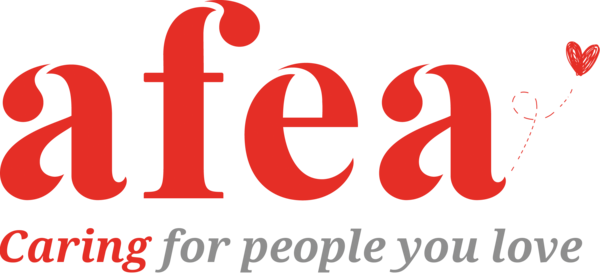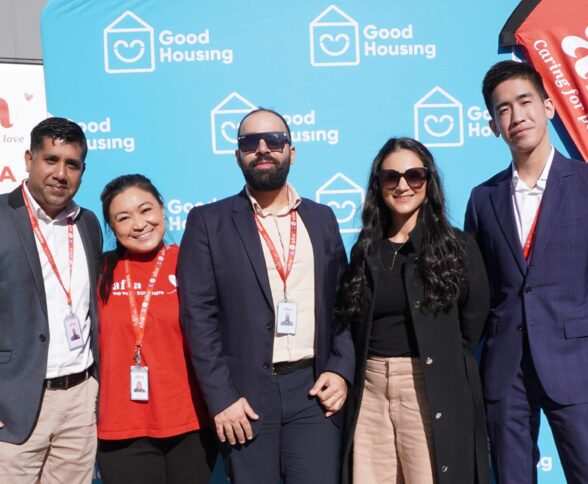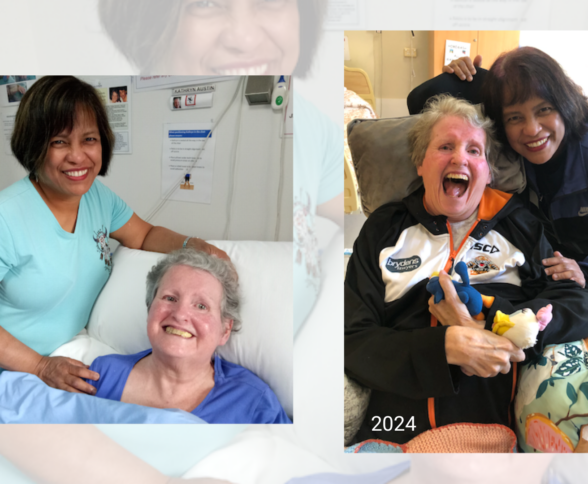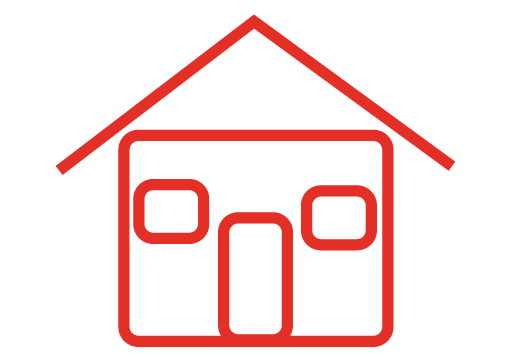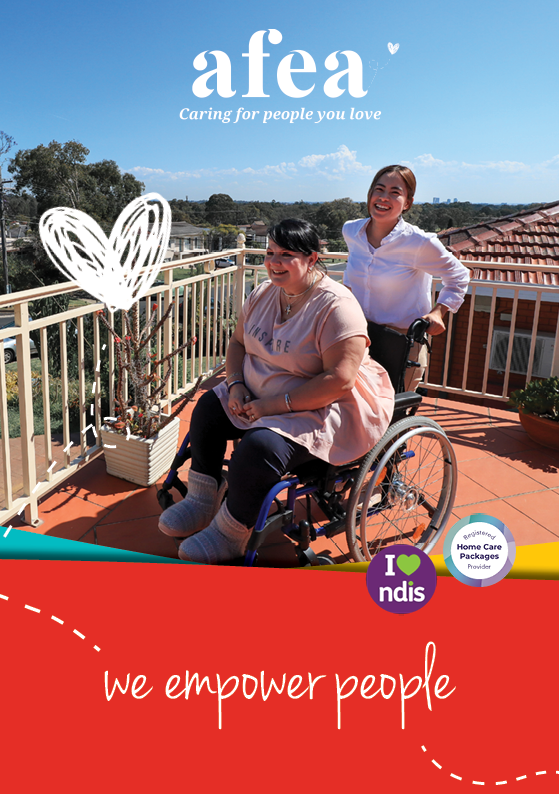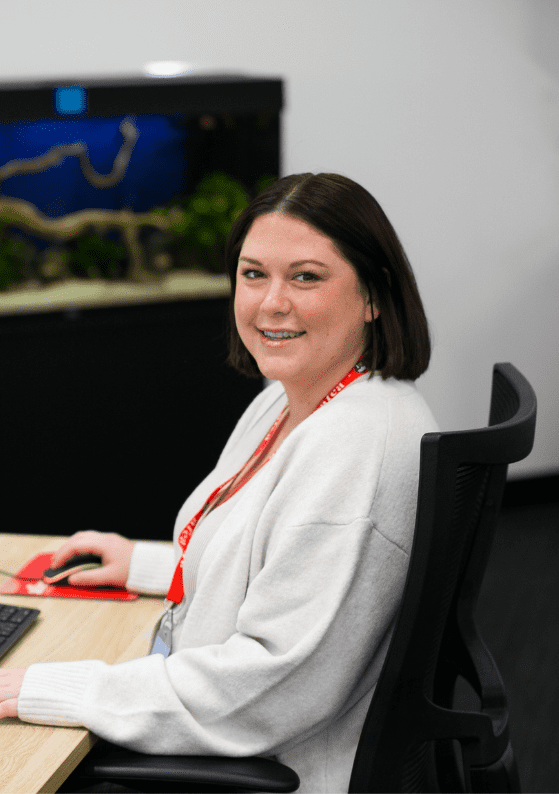Happy Occupational Therapy Week!
This year, OT Week runs from 24 to 30 October, with World Occupational Therapy Day held on 27 October.
This year’s theme is What OT means to me, allowing OTs and their industry partners to reflect on the broad benefits of occupational therapy in the community, especially in the NDIS and aged care space.
“Occupations” in occupational therapy refers to
the everyday activities that people do as individuals, in families and with communities to occupy time and bring meaning and purpose to life.
Occupational Therapy Australia
We spoke with Mary Luong, Occupational Therapist from Super Rehab, and our Care Manager Astrid Depasse, to talk about what OT means to them.
Mary and Astrid frequently work together to support our Home Care Package clients, enabling them to be independent at home.
TRANSCRIPT
Mary Luong
To be completely honest, I didn’t really know what OT was when I finished high school. I initially enrolled in a science degree actually and quickly realized how much I hated chemistry. I knew I wanted to work in allied health because I like to help others and give back to the community and OT seems like the best fit.
What really enticed me in this career was how holistic and client-centred our scope is and how varied our role can be. Which gives you the option where you want to work or specialise in, so this can include the hospital sector, pediatric occupational rehabilitation, mental health and the community.
So in my current role, I work with predominantly Home Care Packages, so with the elderly, aged care sector, but also with the NDIS as well.
On Functional Assessments
We do a lot of like comprehensive reviews, like functional reviews. Just to see what I guess the barriers and limitations of the clients are and to see what we can help them to reach that level of independence and confidence to improve their safety at home as well, so a lot of it is mainly around looking at equipment, as well as modification and then potentially therapy as well.
Astrid Depasse
OTs are very busy, as Mary said. And they have waiting lists and I have been lucky enough to be able to work with them and they have been always very helpful, so that has made me every time that I need. I call them because they have never let me down, so I really appreciate that.
It is hard for somebody to get someone going to their homes to try to ask questions and not knowing why. Because these are elderly patients. Sometimes they don’t understand the purpose of the functional assessment.
So Mary’s pretty good at dealing with that kind of pressure.
Mary Luong
The functional assessment is for me to come in just to assess the home environment, but also to see how they do day-to-day tasks at home. So, it could be simple things as seeing how they go on and off the bed, in and out of the shower, how to do personal care tasks.
Know their background, see what the limitations are and from there, you know trying to work with them to reach those goals.
Occupational Therapy and Afea
Astrid would come out as well in one of the assessments, and we tried to work closely with one another just to ensure that the appropriate services have been referred and also making sure that they are safe at home, which is the most important part.
Astrid Depasse
When you have a family that is supportive because sometimes the situations get very complicated. Because everybody thinks differently. And if it’s four or five people that have a say and then we are there trying to suggest things that everybody thinks differently and the actual client, the patient, is in the middle.
Mary Luong
That why education is so important, and I try to educate them on why this like in a certain a certain equipment or a certain modification is required just to ensure for safety.
Mary Luong
So one of the most enjoyable things in my role is being able to celebrate wins and also the impact it had, no matter how big or small it is, so it can be as simple as seeing a client buttoning the shirt for the first time or having an entire bathroom modified to improve accessibility, and enable them the autonomy and dignity to complete personal care tasks.
Sometimes I feel it’s the everyday tasks that you and I may take for granted. How it can be a struggle or a long-term goal for an individual and it’s amazing that I get to play a small part in that journey and witness it.
Astrid Depasse
I believe that having an OT assessment is an asset for the client. There are things that we take for granted, and you can be at 70 and you can still do things but you never know if at 72 you’re able to do that, so having that initial assessment and maybe doing things to prevent falls, that you don’t want somebody to fall and if you can prevent it, it means that the client can stay safe independent at home for longer.
On Occupational Therapy as a career
Mary Luong
OT is a very, very holistic and client-centred career. It’s definitely a very fulfilling career. I would say so. Definitely go out have a chat with the course coordinators and see if it’s the right fit.
It can be stressful at times, I can say that. But at the end of the day, I think it’s one of the best careers because you get paid to help people out. I think you can’t really beat that!
Astrid Depasse
(laughs) Yeah, absolutely.
This interview has been edited and condensed.
Our thanks to Mary Luong for sharing her time and expertise!
Expert NDIS care from Afea
At Afea, we’ll connect you with the people who can provide support in your day to day life. In addition to our compassionate care services—
- Our Plan Management team is your financial champion, ensuring your funding is used to its fullest potential. At Afea, you’ll have a dedicated Plan Coordinator – just one point of contact for your entire plan journey!
- Afea’s Support Coordinators are committed to helping you achieve your goals, develop your skills and access the best services suited to your needs. Reduce the stress and time spent on implementing NDIS plans with the help of our amazing Support Coordinators!
Reach out to us now via hello@afea.com.au or 1300 65 11 33.
